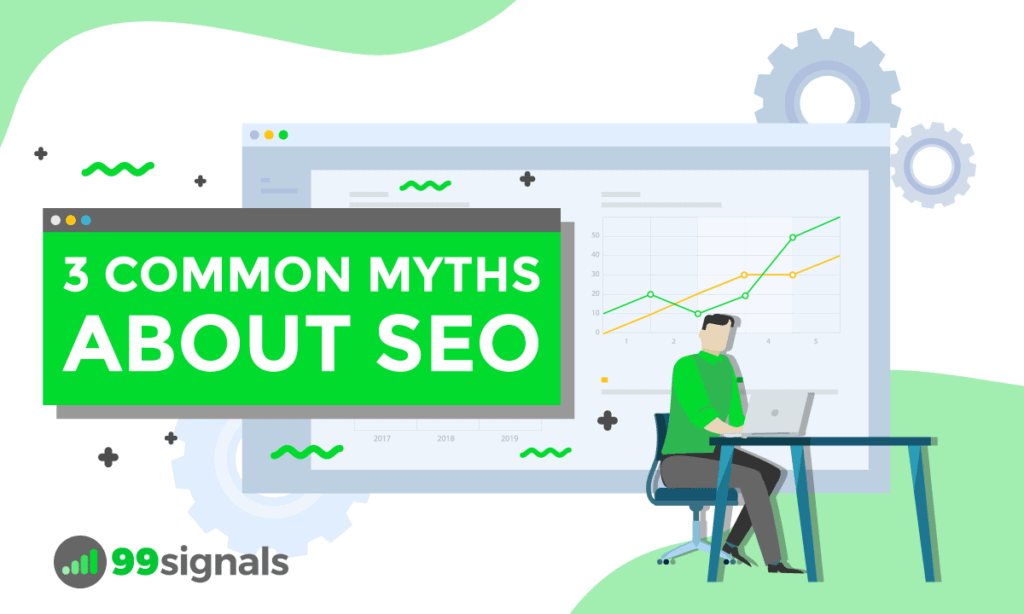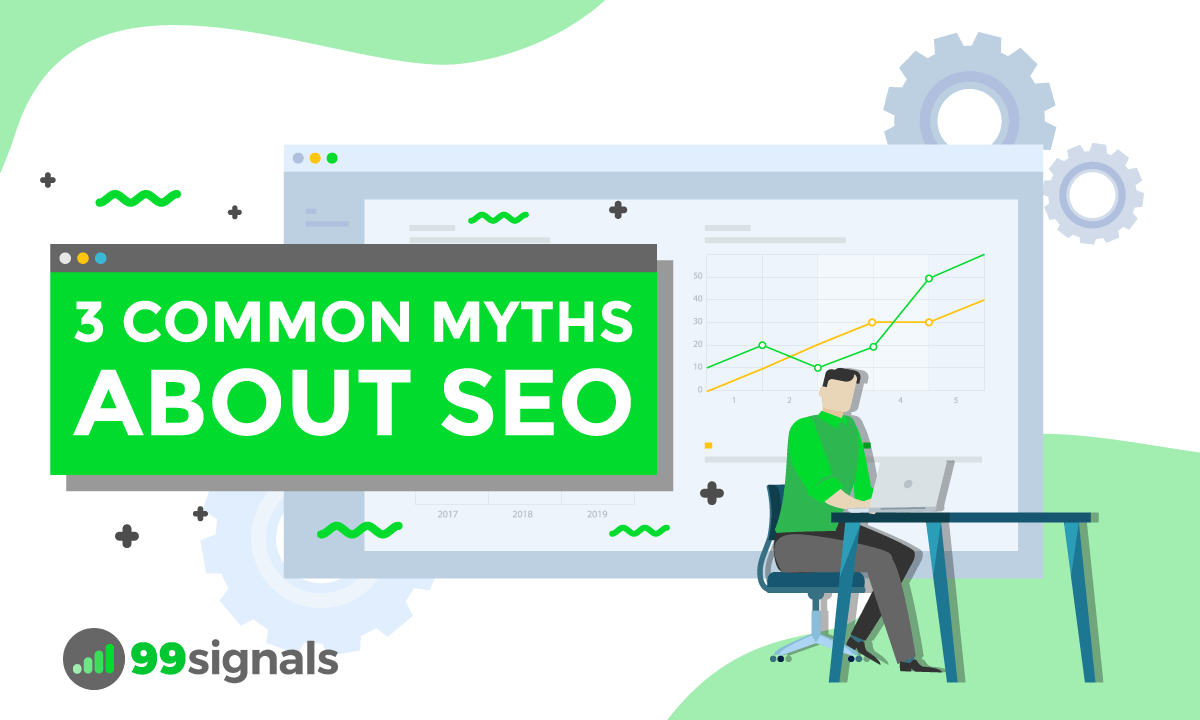Unfortunately, what that means is that millions of websites do not meet their potential because they believed an SEO myth that kept them from ranking properly. You want to avoid that all too common problem. Here are three of the most common myths and the truth behind each claim. [ctt template=”9″ link=”U4Nn1″ via=”yes” nofollow=”yes”]3 Common Myths About SEO[/ctt]
1. Don’t Worry About SEO When Developing Content
Myth: If you have high-quality content then you don’t need to do on-site search engine optimization. Truth: While it is true that content should be your most important focus and that good content can sometimes lift a site higher up in the search engines than a comparable site with low-quality content and better SEO, this is the exception and not the rule. The truth is, that the sites that are ranking high for keywords where the searchers’ intent is to buy something not only have amazing content, they also have finely-tuned, carefully researched on-page search engine optimization that includes keyword phrases, headings, image optimization, internal linking, a whole lot more. Taking just a few extra minutes to research some keywords or optimize a page for a certain phrase is going to pay off big time down the road.
2. Don’t Worry About Getting Backlinks
Myth: Backlinks should be natural and if you create good content, they will take care of themselves. Truth: This is a myth that many websites seem to follow. It is impossible to know where it got started, but the fact that it is pervasive is good news for websites who are willing to change course. Yes, content is king and it’s one of the most important aspects of your website. Yes, it is also true that Google has cracked down on lot of black-hat or grey-hat methods of getting backlinks, devalued some others, and made the entire process more complicated. But, backlinks are still one of the most important factors that determine where your website get ranked in the search engine results – even in 2018. In fact, quality backlinks may be even more important than they used to be since spammy backlinks have lost their effectiveness over time. You need to be concentrating on getting the highest-quality backlinks you can, as well as producing amazing content.
3. There’s No ROI in SEO
Myth: Paid advertising offers a real, measurable return on investment (ROI) at some point in the future. SEO does not. Truth: It is impossible to know what makes people believe this to be true. It doesn’t even seem logical. But the fact is, there are tens of thousands of websites out there that simply consider SEO a waste of time and money. They would rather put all of their eggs in one basket and only focus on paid advertising because it gives them an actual, easily measurable ROI over a projected period of time. What these companies and website owners do not realize is that they are missing a serious return on their investment if they put that same time, energy and financial investment into search engine optimization. The return may not be immediate, nor may it be as measurable as paid advertising, but the long-term potential is actually greater. The main reason is that SEO work stacks, so the SEO you do in month one still adds value in month six, whereas once you pay for a click with paid services like Adwords, your investment is gone.
In Summary
The bottom line is that there are plenty of myths out there about SEO and it takes a discerning person to sort through the noise. Make sure that you are not just believing everything that a so-called SEO guru claims, and understand the basic principles behind search engine optimization so that you will have a much better ability to see what makes sense and what doesn’t. There are plenty of books, free online resources and even higher quality premium online courses out there to help you learn what really works. Most of all, don’t get stuck in a short-term investment strategy. Invest for the long-term and you’ll see your website rise become meteoric.
4 SEO Mistakes That Are Costing You Traffic (And How to Avoid Them) 14 Best Google Chrome Extensions for SEO 20 Questions to Ask Potential SEO Clients

